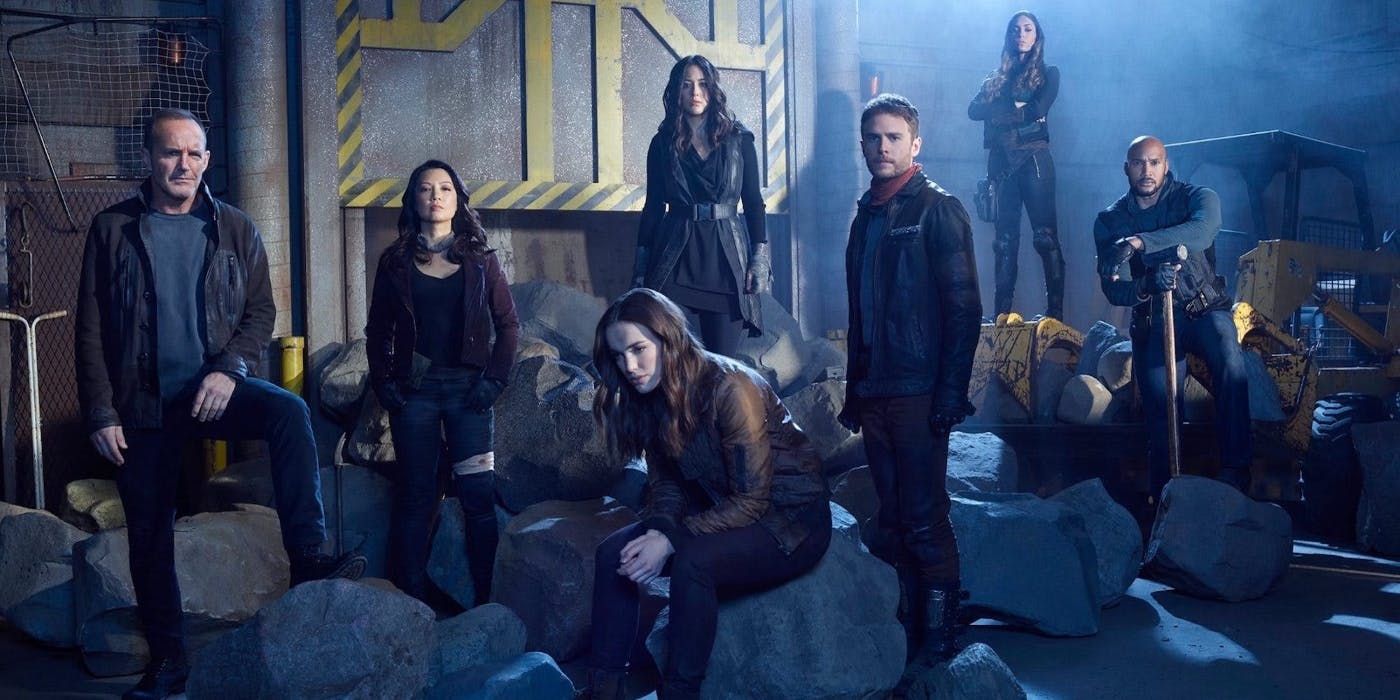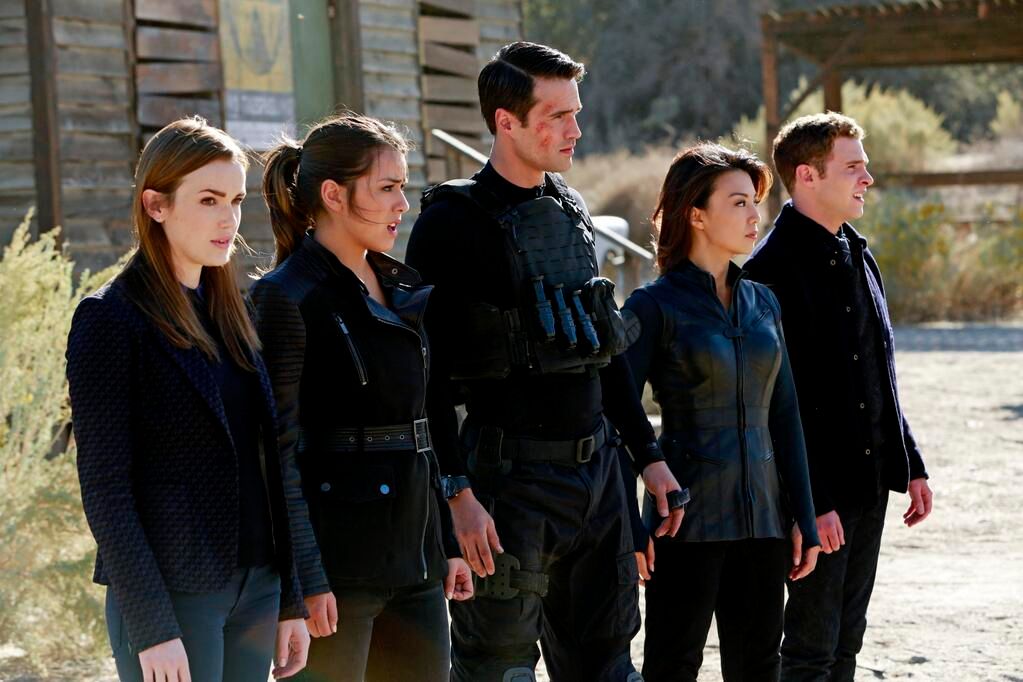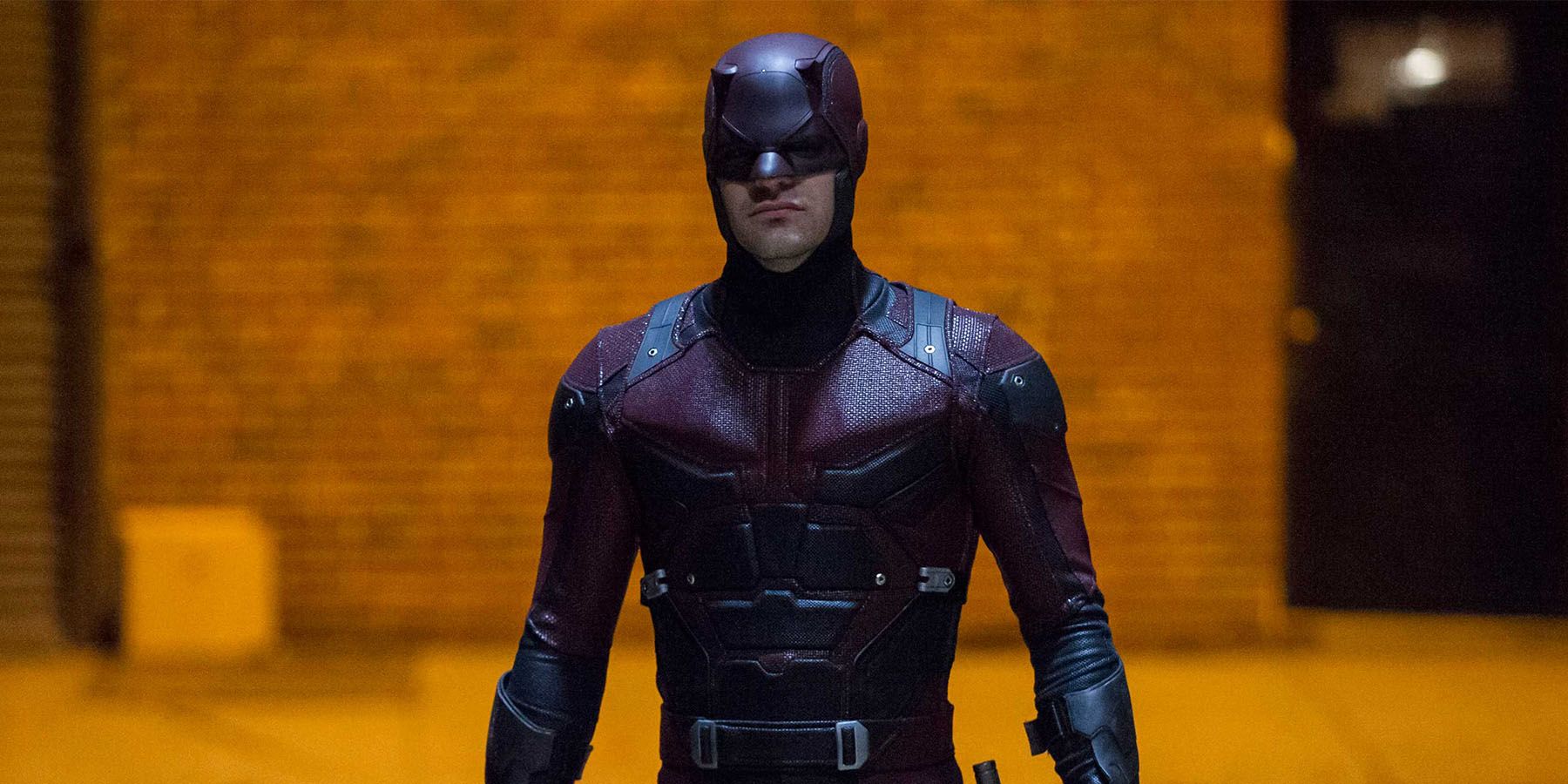After successfully launching its shared cinematic universe, Marvel opted to try and bring smaller-scale stories set within the same universe to the smaller screen with the introduction of 2013's Marvel's Agents of S.H.I.E.L.D. on ABC. The series had numerous things working in its favor upon launch -- the return of fan-favorite character Phil Coulson (Clark Gregg), who'd been killed in 2012's The Avengers, as well as the promise of tying into the films.
Unfortunately, while the series premiered to stellar numbers, over time those numbers continued to decline as fans voiced their frustrations with the series. Still, despite those early cries, the series went on to earn seven seasons and found a devoted fan-base that has stuck by its side throughout it all.
When it was reported last year that Season 6 of Agents of S.H.I.E.L.D. would only consist of 13 episodes, many presumed this meant, should the show get renewed, it was doubtful it would return beyond a seventh season. This news was finally confirmed earlier this week when Marvel Television and ABC confirmed the series would end its run after Season 7, which is currently in the midst of production.
Still, while many are understandably upset regarding the decision, none can say the show didn't have an impressive run. Not only is it Marvel Television's longest running series -- even beating out the Netflix series' -- but it's easily one of its best in terms of quality. So, how exactly did Agents of S.H.I.E.L.D. manage to become Marvel's most successful television show? For that answer, we'll need to look back on the show's past.
Even the biggest S.H.I.E.L.D. fans will tell you that the first half of Season One was a rather bumpy ride. It was a series that featured mostly new characters that we hadn't even heard of -- with the exception of Coulson and, of course, Maria Hill (Cobie Smulders) -- and we had to learn to care about them and their jobs within S.H.I.E.L.D., an organization which we'd already come to know thanks to the films. And it, of course, didn't help that despite promising a series that would tie into the films, the early tie-ins were rather minimal, either showing the team arriving at a location once things had wrapped up, or simply name dropping the original-six Avengers.
It admittedly took some time for the show to find its footing, and while it did lose a large part of its audience over the course of the first season, those that stuck through and allowed the show's story to progress were treated with something new and exciting. Even more importantly, the show would help to set up the events of Captain America: The Winter Soldier and included some jaw-dropping twists along the way.
In fact, that's part of what made Agents of S.H.I.E.L.D. so special. While the Netflix shows played coy regarding their references to the greater Marvel Cinematic Universe, S.H.I.E.L.D. never shied away from connecting to the films -- even if the films ultimately opted to ignore the series. (Remember how Inhumans played a huge part on the series but were never mentioned in the films?) More importantly, though, those involved with the series were always willing to take risks. Introducing Ghost Rider/Robbie Reyes, or even the Inhumans, shouldn't have worked on a series crafted for prime time, and yet, the series did so rather impressively.
So much so, in fact, that Ghost Rider is now getting a series on Hulu. At a time when ratings are essentially everything, it's refreshing that rather than play it safe, the creatives behind the series decided instead to push the envelope.
From doppelgängers to space adventures -- including a standout bottle episode in Season 3 -- Agents of S.H.I.E.L.D. is seemingly always ahead of not only Marvel's other television series', but also most superhero shows on television these days. It's not a baddie of the week series, these are continuing stories told over the course of a season that do, eventually, have a major payoff.
And while many will argue against this, Agents of S.H.I.E.L.D. has been consistent in its quality since it found its footing mid-Season 1. Sure, it may not have been a ratings phenomenon as many expected -- beyond the pilot, of course -- but the show was always nothing if not consistent. Which isn't something the Netflix series can say, exactly.
Although the first seasons of Daredevil and Jessica Jones were critically praised, Luke Cage and Iron Fist seemed to show a dip in quality as far as critics were concerned leading up to The Defenders and The Punisher. Those shows have all since been canceled, with Daredevil and Jessica Jones' three seasons having been the longest running series of the bunch. Then there's Agent Carter, which Marvel Studios' president Kevin Feige worked on for the first season. Unfortunately, though, when the series returned for a second season, it lost a fair amount of its audience, as well as many of the critics that had praised its storytelling through its first season.
So, how did S.H.I.E.L.D. become Marvel's most successful television venture? By allowing the creatives to tell the story they wanted to even when the general audience seemed to lose interest. That seems to be the key here. Not forcing a story to be told; S.H.I.E.L.D. seemed to always find a natural way to connect to the MCU. But those connections never harmed the story that was at the forefront.
It remains to be seen what Marvel Studios has in store with its own television shows for Disney+, but one thing is for sure, Marvel Television's Agents of S.H.I.E.L.D. will surely leave its mark on the Marvel brand once it wraps up next summer.
Marvel's Agents of S.H.I.E.L.D. airs Fridays at 8 pm ET/PT on ABC. The series stars Ming-Na Wen, Chloe Bennet, Henry Simmons, Iain De Caestecker, Natalia Cordova-Buckley, Elizabeth Henstridge and Clark Gregg.



